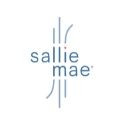Student Loans for Single Moms
If you are planning to get back in career when you are a single mother then you can use these programs to get your loans. Learn more about grants, and scholarships. Explore options and choose the one which suits you.
Updated by Kirtika Acharya on 29th August 2020
When you are juggling with kids, and you decide to enroll in school for studies, it is already a tough decision, but it gets tougher when you face financial hardships. It becomes hard for you to pay the tuition fees for the school. This article briefly explains the student loans for single moms and other features included in it.
To cover the high-rise in cost for tuition, one must try and explore the available grants, scholarship options available to them. After exhausting yourself at these options, it is advised to explore other forms of financial aid. Student loans are a great option, even for single moms/parents. Read more to know why?
Table of contents
- Why choose student loans and what are your student loan options
- Eligibility requirements for single parent/moms
- Repaying single parent loan
Why choose student loans
The student loan market is no longer exclusive for recently-graduated high schoolers hoping to become undergraduate college students. Non-traditional students have access to many large-scale student assistance programs and resources that specifically target returning students and single parents. Working adults and non-traditional Federal Programs college enrollees are best-served by multi-pronged approaches to landing student aid.
Offer the deepest pockets for student borrowers, so due diligence is required to pursue traditional college financing from the US Government. For additional funding, students take federal loans and private loans that the college-aged 18-24-year-olds take. Unless there is an age limit, adult students and single parents are invited to apply. Use the resources to fund your education.
Federal student loans for single moms
Federal student loans are widely favored options for college students of all ages. They are affordable, accessible, and provide low-interest financing without credit checks. Students enrolled in college at least half-time are eligible for federal loans, either through the Direct Federal Loan Program or the Federal Family Education Loan Program (FFELP).
The loans offered are -
Federal Subsidized Loan
Federal Unsubsidized Loan
Direct PLUS Loan
Application Process
Requesting federal financial aid starts with submitting a standardized form called the Free Application for Federal Student Assistance (FAFSA). The application gathers data about your financial picture relating to college, and your family’s ability to meet expenses.
Your school then takes these data from your FAFSA to determine what your on-campus funding needs will be. Blending your Expected Family Contribution (EFC) with available student assistance programs, college financial aid offices craft individual packages of aid that address your particular college financing needs.
FAFSA requires students to register as dependent or independent applicants. The good news for returning students/single parents is that independent status generally prevails, allowing them to qualify for higher levels of assistance than students whose parental income is included in the application.
Interest Rates
If you are worried about your credit history, Federal Direct Loans provide one of the friendliest no credit check borrowing options around. While loans must be repaid with an interest rate decided by the ED, there are financial aid options like grants and scholarships which do not have to be repaid. It can be useful to take advantage of these options below.
Grants and Scholarships for single moms
There are several options you can choose from if you can’t afford to get a student loan. Scholarships, grants, and tuition waivers are available. Some of them are given below.
-
Women's Opportunity Awards: This award is given by Soroptimist, an international volunteer organization dedicated to improving the lives of women and girls by providing a single-parent student grant. They are given to women who are the primary providers for their dependents. And also enrolled in an undergraduate/ vocational academic program.
-
Jeannette Ranks Women's Scholarship Fund: This scholarship is designed for women who are trying to go back to school. To qualify, an applicant must be at least 35, have a low income, and be enrolled in a vocational, technical, associate, or own a bachelor's degree program.
Learn more about scholarships for single moms
Private Student Loans for single moms
Federal loans don’t always cover all expenses for single parents, so private lending is another alternative. Unfortunately, some applicants are rejected from the get-go based on credit requirements. Private lenders subject student borrowers to the same formal credit checks faced by other adults borrowing money, so without substantial credit, you’ll need to enlist the help of a student loan cosigner.
Private student loans are a double-edged proposition. On the one hand, they provide valuable resources that bridge the affordability gap that’s left when other aid doesn’t get the job done – but they do come with limitations. When student loans are used without consideration, student loan debt accumulates. And some private loans have high-interest rates and rigid repayment terms.
Proper college budgeting and making reasonable borrowing decisions are fundamental to meeting financial expenses.
Some lenders which offer private student loans for single moms are -
1- Sallie Mae
2- College Ave
3-LightStream
4-Upgrade
5-Lending Club
Eligibility requirements
Most financial aid options are designed in the form of grants and scholarships for single parents. Many organizations look for women who are only providers for their dependents.
Other organizations assist low-income women, or they award merit-based scholarships to students who have excelled in a particular subject area.
Standard requirements for eligibility are -
1 - To have at least one dependent for whom you are the sole provider
2 - Acceptance to an accredited college or university
3 - Acceptable SAT or ACT scores
4 - A GED/ high school diploma
5 - Sometimes, an income below a defined amount.
Worried about your college tuition? Learn more about student loans
Repaying single parent loan
Repayment of loans created for low-income or multiple-dependent recipients will function similarly to any other school loan. Students typically have a grace period after graduation, for six months, and then they start the repayment. Students can choose a repayment plan that suits them best, and they can apply for deferment plans if they are struggling financially during the repayment period.
If a student is given a scholarship/grant, it will be applied to tuition costs by the financial aid department at the student's university.
-
Though consolidation may not always help you save a lot of money, you can make lesser payments each month that will increase the longevity of the loan in the long run.
-
Refinancing your existing loans can help you get a new loan with a lesser interest rate.
-
If you manage to make payments at the right time, you can eventually apply for loan forgiveness.
-
Income-driven repayment plans can help you manage other expenses along with your loan as income-driven plans consider other factors like the size of your family, residence, etc.
-
If you face any financial crunch you can always apply for deferment and forbearance so that you can build back your financial stability and then continue the repayment process.
-
Child care programs are provided for low-income parents to help them cover expenses for their children's schooling.
-
After pursuing graduation, chances of getting a reasonable job can help you increase your income to have a better lifestyle and repay your loans faster.
Loan Repayment terms
Under normal circumstances, your loans are subject to user-friendly conditions designed with repayment cushions for graduates entering the workforce. Deferments and grace periods are built-in, so students have a window to secure employment before repayment starts.
Grace Period - Direct Loans, formerly known as Stafford Loans, has six-month grace periods after graduation. If you have subsidized Direct Loan, the Federal Government pays the interest during the grace period, after which your regular repayment schedule begins. Not the case with Federal Direct Unsubsidized Loans: Instead, you start paying the interest as soon as the loan is funded.
Learn more about the repayment plan
If you’ve been wondering about how to pay for college, now you know that particular financial aid is at your disposal. And you can find opportunities that are meant for single moms, such as single-mother grants for college.
Before resorting to student loans, don’t forget to apply for grants and scholarships. You might ask for first-generation student scholarships, for example, if you’re first in your family to seek a degree.
When applying for financial aid, find ways you can differentiate yourself on applications. After all, you’re more than a single mom. You’re a future college student, too.
| Minumum Credit Score | Apply in as little as | Variable APR | Fixed APR | ||
|---|---|---|---|---|---|
 | Not Available | 15 minutes or less | 2.95 | 4.74 | View disclosures |
 | 620 | 2 minutes | 5.38%-16.99%1 | 4.43%-16.99%1 | View disclosures |
 | Not Available | 15 minutes | 1.13% - 11.23%¹ (with autopay) | 3.50% - 12.60%¹ (with autopay) | View disclosures |



93.jpg)


28.jpg)
